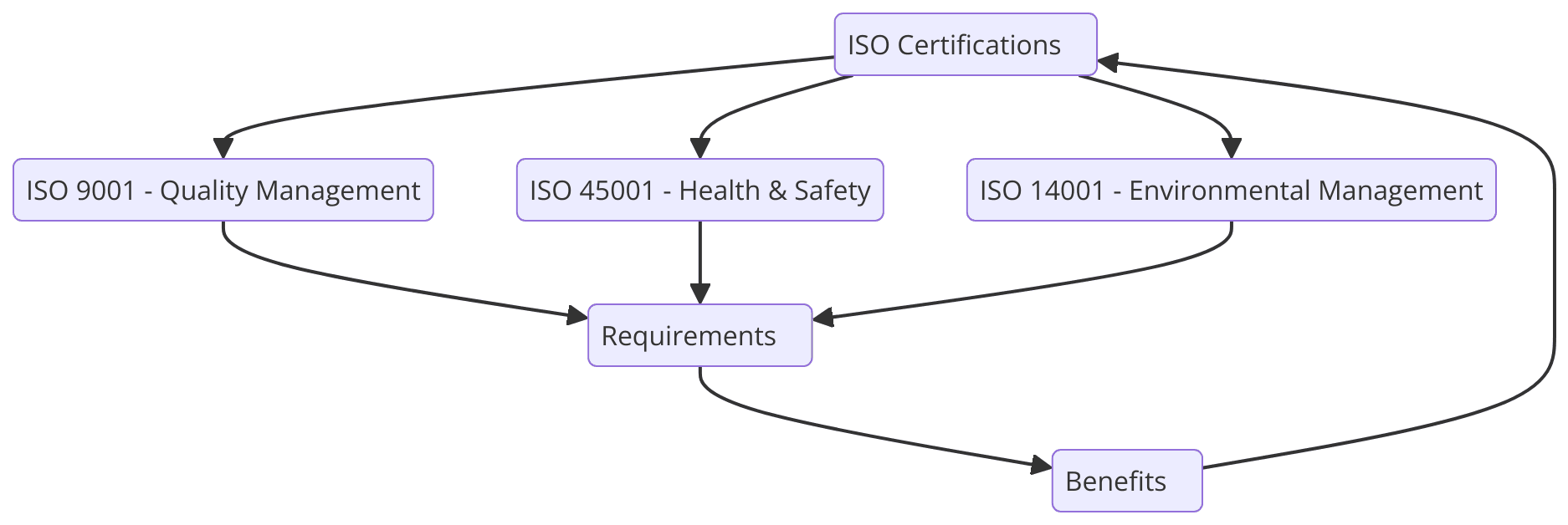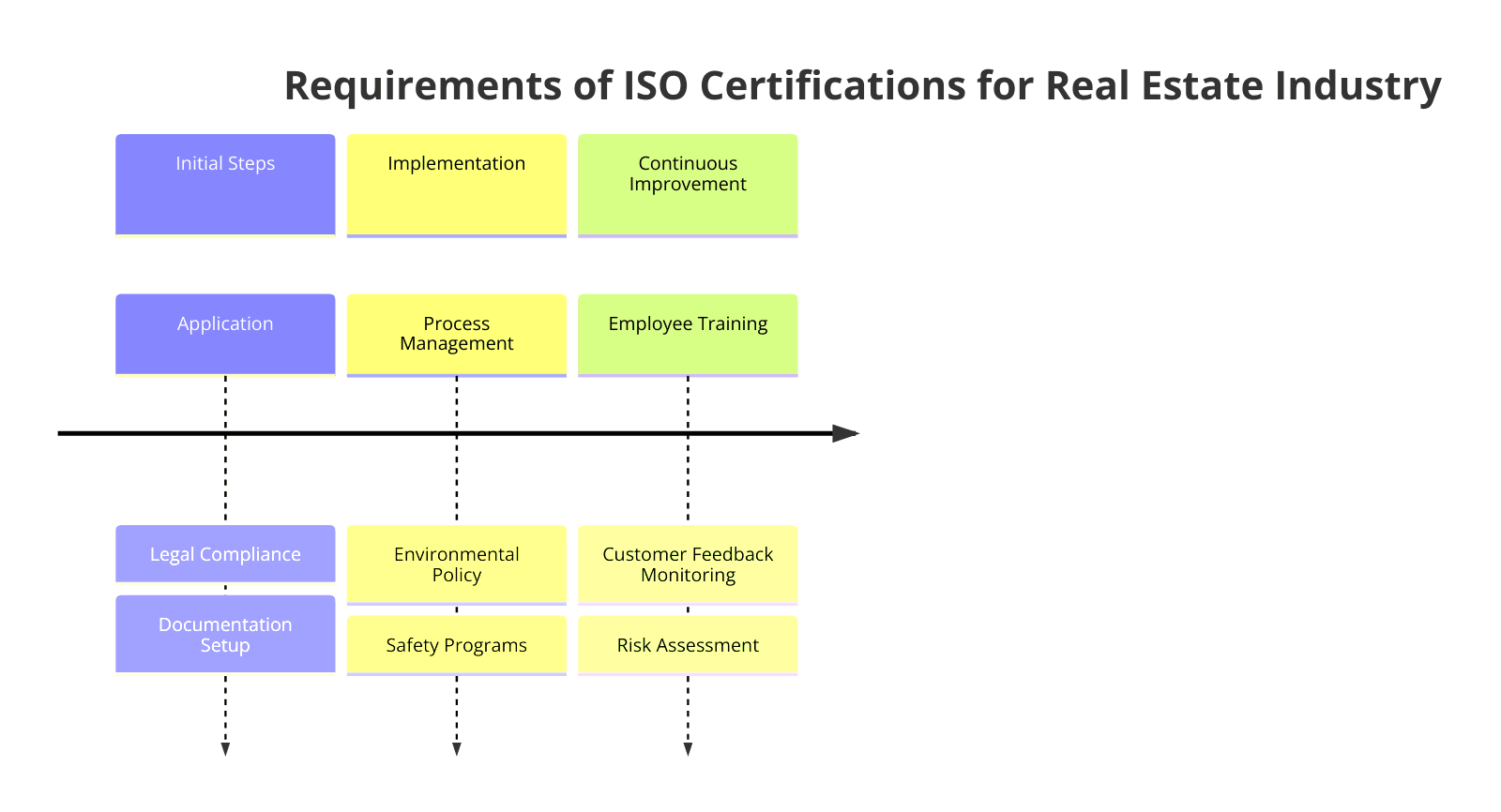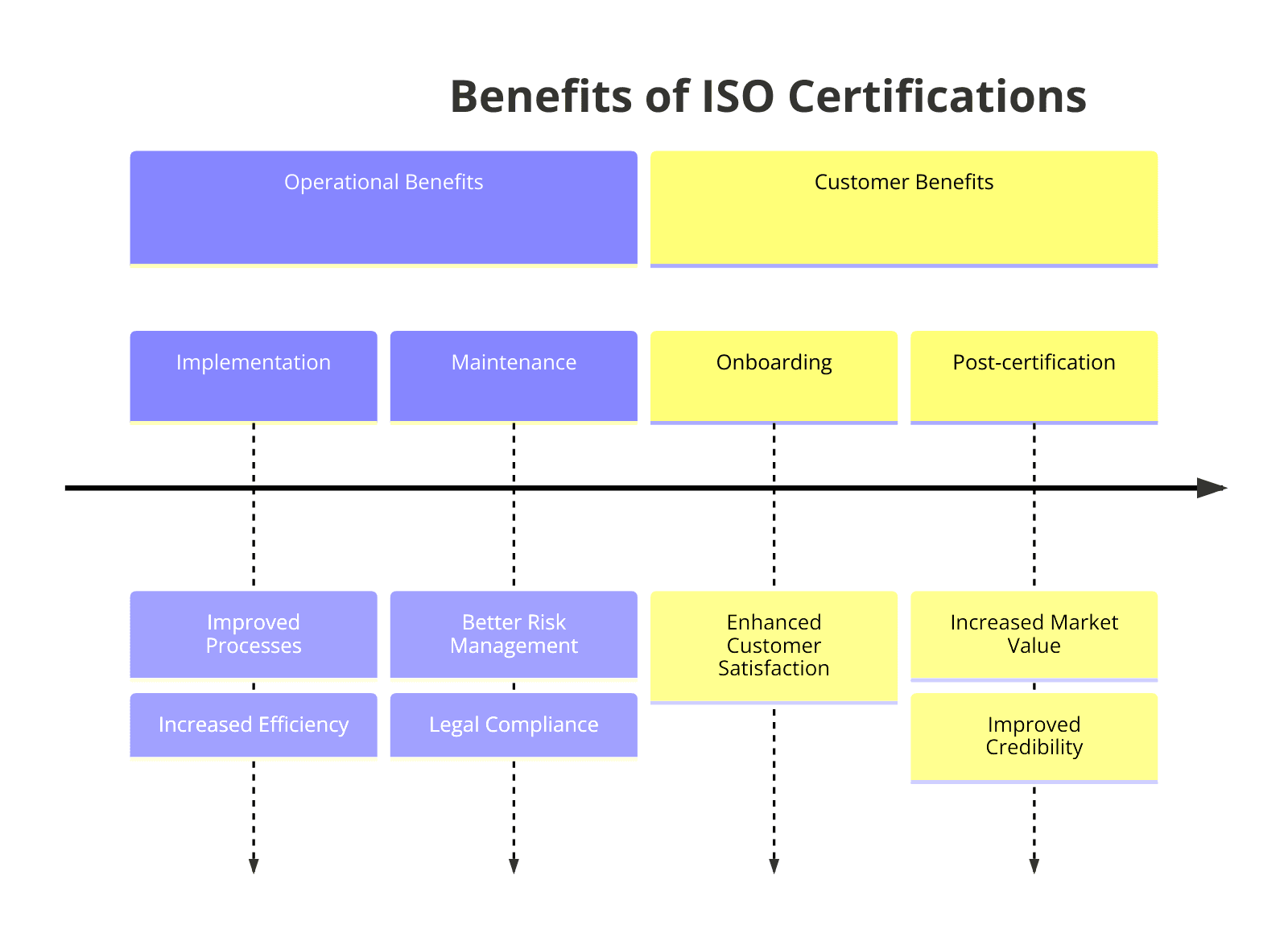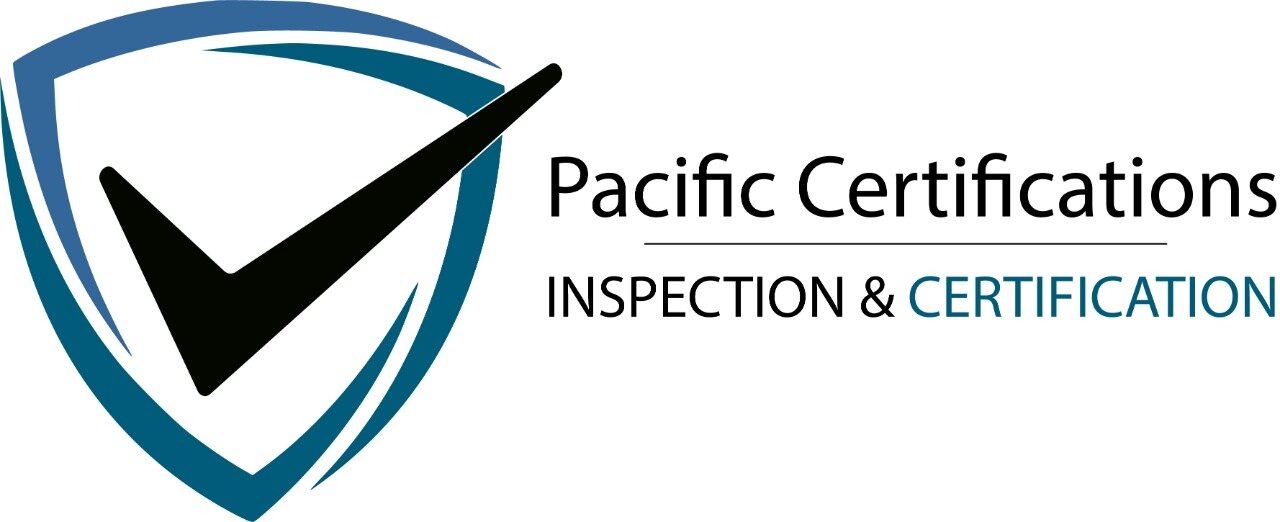ISO Certifications for Real Estate Industry, Requirements and Benefits
ISO Certifications for Real Estate Industry

ISO certifications are highly beneficial for the real estate industry, helping businesses improve quality, transparency & sustainability. ISO 9001 for Quality Management Systems is particularly useful for real estate companies, ensuring consistent service delivery.
ISO 14001 for Environmental Management is increasingly important in real estate, as it promotes eco-friendly building practices, energy efficiency, and sustainable property management, aligning with the growing demand for green buildings.
ISO 45001 for Occupational Health and Safety is essential for real estate developers and property managers, helping create safer working environments on construction sites and in managed properties.
These certifications demonstrate a company’s commitment to quality, safety, and environmental responsibility, strengthening its reputation in the market.
Many countries like USA, India, China etc, are making efforts to promote Real Estate industry and create more opportunities in recently, click here for the reference news
For ISO certification support, contact [email protected].
Applicable ISO standards:
Below are the most common standards for real estate industry:
ISO 9001:2015- Quality Management Systems (QMS) - This standard focuses on implementing effective quality management systems within an organization, ensuring consistent delivery of products and services and enhancing customer satisfaction.
ISO 14001: Environmental Management Systems (EMS) - This standard focuses on establishing and implementing an environmental management system to help organizations minimize their environmental impact. Real estate developers that engage in construction activities can adopt this standard to promote sustainable practices.
ISO 55000: Asset Management- This standard provides guidelines for effective asset management practices, which can be relevant to real estate companies managing property portfolios and facilities.
ISO 37001: Anti-bribery Management Systems- ISO 37001 offers guidelines for implementing anti-bribery measures to prevent bribery and corruption within an organization.
Overall, Real Estate companies can seek certifications based on relevant ISO standards to show their commitment to quality and responsible business practices.
What are the requirements and benefits of ISO Certifications for Real Estate Industry?

ISO certifications can make a huge difference in the real estate industry by improving how companies operate, manage projects, and engage with clients. Here’s a breakdown of the key requirements and benefits of the most relevant ISO certifications for real estate businesses:
ISO 9001: Quality Management Systems
- Documented Processes: Develop clear, documented procedures for every stage of your real estate operations—whether it's property development, sales, leasing, or facility management.
- Customer Focus: Prioritize client satisfaction by meeting their needs and expectations consistently, from initial property inquiries to after-sales service.
- Risk Management: Identify and mitigate risks, such as project delays or construction issues, ensuring smooth operations.
- Continuous Improvement: Regularly monitor processes and gather client feedback to improve service quality over time.
- Leadership Commitment: Ensure top management is actively involved in maintaining and promoting quality across the company.
ISO 14001: Environmental Management Systems
- Environmental Policy: Create a policy that outlines your commitment to sustainability, focusing on eco-friendly practices in construction, energy efficiency, and waste management.
- Impact Assessment: Regularly assess and minimize the environmental impacts of your projects, such as carbon emissions, resource consumption, and waste.
- Legal Compliance: Stay compliant with environmental regulations and standards in your region.
- Sustainability Goals: Set measurable environmental targets, such as reducing energy use in properties or promoting green building certifications.
- Employee Training: Educate staff on sustainable practices and encourage environmentally responsible decisions in their daily tasks.
ISO 45001: Occupational Health and Safety
- Risk Assessment: Identify potential hazards on construction sites and within managed properties, from fall risks to electrical hazards.
- Health and Safety Policy: Implement policies to ensure the safety of workers, tenants, and visitors, including emergency procedures.
- Safety Training: Provide regular training for employees and contractors on how to avoid and respond to workplace risks.
- Incident Reporting: Have systems in place to report, investigate, and prevent workplace incidents, ensuring continuous improvement in safety measures.
- Compliance with Regulations: Adhere to local occupational health and safety laws and standards, ensuring a safe environment for all.
What are the benefits of ISO certifications for Real Estate Industry?

1.Higher Customer Satisfaction and Trust (ISO 9001)
With ISO 9001, real estate companies can offer consistently high-quality services, from smooth property transactions to excellent facility management. Clients appreciate reliability, and this certification shows that your processes are well-organized and efficient.
2. Sustainability (ISO 14001)
Sustainability is a big deal in real estate, and ISO 14001 can set your company apart by showing a genuine commitment to environmentally responsible practices. Whether you’re promoting eco-friendly buildings or reducing waste during construction, this certification makes your properties more appealing to eco-conscious buyers and tenants.
3. Safer Workplaces and Reduced Risk (ISO 45001)
For real estate companies involved in construction or property management, ISO 45001 helps ensure safer working conditions, reducing accidents and legal risks. Safer job sites lead to fewer disruptions and a reputation for responsible management.
4. Regulatory Compliance
ISO certifications ensure that your business complies to all relevant regulations, whether it's environmental laws for construction or health and safety rules for property management. This minimizes the risk of fines, delays, or legal issues, allowing projects to proceed smoothly.
5. Operations and Efficiency
By implementing ISO standards, your company can reduce inefficiencies across the board. ISO 9001 helps streamline project management, communications, and client interactions, leading to faster project completions and reduced costs.
6. Stronger Market Reputation
ISO certifications provide a mark of quality and professionalism that can set you apart in a crowded market. Clients, investors, and partners are more likely to choose a real estate company that demonstrates a commitment to internationally recognized standards.
7. Long-term Business Growth
By focusing on continuous improvement and client satisfaction, ISO-certified companies are more likely to grow and succeed long-term. These certifications help build trust, secure repeat business, and attract new clients.
Incorporating ISO standards into your real estate business can lead to smoother operations, happier clients, and a stronger market presence.
If you need more support with choosing the right ISO certification for your Real Estate Business, please contact us at +91-8595603096 or [email protected]

Read more: ISO certification for Funds Management Services and applicable standards